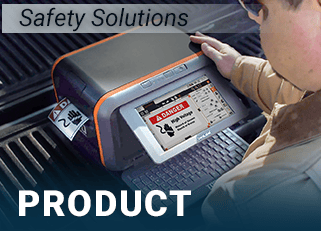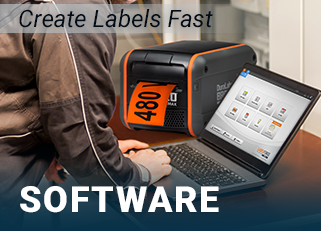Technical Learning Systems in Manufacturing
03
February,
2023
9 MINUTE READ

"Learning and leadership are indispensable to each other," - this quote by U.S. president John F. Kennedy still rings true today. Three months into a new year and maybe there are some personal or business goals company leaders have set for learning, accomplishing, and changing. How are those plans going? Perhaps it's a good time to start them. Social media specialist and education enthusiast Jerod Clapp of Amatrol, an interactive technical learning company, leads the discussion on technical learning systems in manufacturing for this week's #USAMfgHour. Below is a recap of some of that chat.
Learning and Success
Innovation never slows down and workplaces need to do all they can to keep up. It sometimes can be hard to find people with the right skills for the job and keeping them can be another challenge. When employers are willing to invest in their employees to keep skills fresh, it boosts the company's competitiveness, Clapp said. It's also a strong method in bridging the skills gap.
What skills do most applicants lack that they need to be successful at your company? How is your company closing these skills gaps in the workforce?
"For BizzyWeb, we need people who have both hard and soft skills," said Dave Meyer of BizzyWeb. "They need to know the tech, but also need to be able to work with clients. It's an important line to walk when dealing with #marketing and #seo - and very helpful when they can communicate clearly."
"Our electromagnetic department takes some special skills as well as running our grinders, which were manufactured 50+ years ago," said Sue Nordman of Obsidian Manufacturing. "We train new employees if we can't find people with experience. We actually cross-train most of our employees."
"I'd say it's really dependent on which job they're applying for," Obsidian said. "If it's for a grinding operator, we obviously would prefer grinding experience, whereas for an electrical job, the electrical experience. Most things can be taught on the job though. I also definitely think we look for attitude above all else. Having the right attitude about a new job, despite experience goes a long way."
"Systems & software knowledge," said John Buglino of Optessa. "We are building out a better onboarding process - including scripted demos of the software/tech stack to make it easier to understand + ramp up."
"As a Boomer, I don't have to rely on my present employers to answer," said Phil Samuels, a sales and marketing professional. "We have worked with local high schools and trade schools and associations that provide necessary training. Support them financially and with our time."
"It all really depends on the position that they are applying for," said Dan Bigger of Chenango Valley Technologies. "Most of our machine operators are general labor and those skills can be picked up with time and effort. For our tooling shop, it is experience. That again comes with time."
"I can only speak from my own personal hiring process," said Julianne Schaub of Striven Business Software. "I think that with any job what will hold folks back the most is the inability to learn as they go. It's impossible to start a new job and know everything. Come in willing to learn not like you know it all."
"I think communication skills, professionalism, team player, and respect are tops," said Gina Tabasso of Dar-Tech.
"If you'd call work ethic as a skill, that's one of those that is hard to find these days," said Ruby Rusine of Social Success Marketing.
"Experience is No. 1 for us. Most have at least a HS education, but we need experienced employees as we look for creative ways to train people," said Rebecca Hart of Drive Source International/Dynamatic. "We're a small company of 25, so it's hard to devote time to training. We're simply looking for the longer resumes."
"From my position communication between departments is the biggest problem," said Nick Rivers, a manufacturing sales professional. "We try to make a paper trail (Work Orders) and use personal notes for extra information."
"Training/Onboarding needs to be standardized - we are working on this," Buglino said. "Employee improvement - there's a budget set aside for professional growth & development. You need to research the certification, event, & training - develop the business case to be approved."
Excellent employee pipeline options for manufacturers are Career and Technical Education programs. What features at high schools and community college programs around you most support your company's training needs?
"To be honest, I don't believe we've ever worked with a local high school or community college," DSI said. "I'm not sure what they offer. Could be something to look into in the future."
"You'd be surprised about the opportunities that might be available," said Mike Womack of NJMEP.org. "We're actively partnered with NJ high schools, providing Pre-Apprenticeship training to High School Seniors so they're ready for a manufacturing career once they graduate."
"We are doing all we can," CVT said. "We did Mfg day last year along with some career fairs. With virtual now, I am speaking with classes and doing webinars to let kids in HS or Tech schools know all that is available in the #plastics industry. There are careers."
"Probably not as impactful for us," Dar-Tech said. "Individuals can get job-specific training online from organizations in their field, such as marketing or sales or customer service. And we can get industry training from trade associations."
"I agree. A lot of younger people in those programs want the latest and greatest innovations," said Nordman. "Unfortunately, a lot of our customers as well as our own shop don't have the latest model for every machine. A well-rounded machinist will use CNC and manual machines."
"Historically, machining and programming G code. Now it would be people learning data science," said Samuels.
"Isn't it amazing how quickly technology changes?" Clapp asked. "We're always keeping pace with what's important to schools and industry, and we welcome the challenge to stay on the edge."
"We look for software developers + those that partake in hack-a-thons," Buglino said. "We need people who are quick to react and think outside the box to develop solutions."
With all the future tradespeople enrolling in colleges throughout the county, Clapp says there are four ways to establish ties with local community colleges.
- Consider finding a liaison to help with efficient communication.
- Start with a brainstorming session to get the ball rolling.
- Get the campus' president involved in discussions.
- Invite college faculty members to voice their opinions, concerns.
While educational avenues are excellent resources, try to find as many outlets as possible, Amatrol's Wes Scott said in the company's blog.
What attributes do you see as most vital to improving current employees and applicants: Hands-on skills and experience, conceptual knowledge, soft skills, or a mixture?
"Soft skills for sure! Being able to be flexible and willing to learn is essential in any job," Obsidian said. "The employee is more motivated to further their hard skills if those soft skills are present."
"Again, it all depends on the position," CVT said. "The most vital to us would be dependability and effort for machine operators. For all, a willingness to learn. We have options to put people in an apprenticeship program through NYS, but they have to show the want to."
"Most companies I've worked for, sort of leave that up to the employee to handle personal development," Dar-Tech said. "I've gone out and gotten certifications and taken webinars on my own."
"Personal development is mostly on our own, but we're highly encouraged to improve our industry education and personal skills," DSI said. "This is why I joined the #USAMfgHour!"
"Open to other duties as assigned + soft skills," Buglino said. "We are building something incredible and at times this requires you to step outside your normal duties #DealWithIt."
"Adaptability and flexibility," said Samuels. "Be a life-long learner because the pace of change is only going to increase."
"Soft skills and communication, technical skills are easier to acquire," said Sam Gupta of ElevatIQ.
Room for Improvement
What does your in-house training or employee improvement program look like? How do you think you could improve it?
"I don't know all of the ins and outs of it, but I am sure that it could be improved," CVT said. "You can usually spot the go-getters and they get promoted based on willingness and effort. From there we have apprenticeship programs available."
"With @milestech, I had a week-long orientation where I got to virtually meet the new hires, the CEO, and people who had been with the company for ages," said Striven. "It's just as important to know who you can go to for help as it is learning the job."
"We have a library with resources for our workers and an online-education account that workers can use any time," said Duralabel. "We encourage all staff personal and professional development. Training is part of continuous improvement - and we are all about that."
"Based on previous answers, you could say we don't really have one," DSI said. "We really rely on the experience to bring knowledge and new ideas to the table. Could it improve? Yes! I'm creating an onboarding packet that explains general information to new hires."
"We have a checklist for onboarding and are working on capturing all our SOPs (standard operating procedures) in a central spot," Meyer said. "We also have people record those SOPs via short videos. If it takes more than 3 steps, we want to track it. Makes #onboarding way easier."
"The more documented the training is the better, in that way you don't have to spend time training each time," Gupta said.
"First, I think there's always room for improvement with almost everything," Nordman said. "So, that being said, our training/improvement program could use some update. Like I said earlier, the variables are always changing, innovation is always happening."
"Currently, I receive continuing education programs from our owner Sue," Rivers said. "She is always sending me things to read, study, or be tested on. I didn't realize how much I had forgotten. I use a lot of soft skills daily."
"We are a very small company, so we usually have our boss guide us through the first week or so, and from there we start to get a grasp of how to do the work," said Crescent Software. "We have an open-door policy, so questions are encouraged!"
"Too small for in-house (other than on the job), but support learning elsewhere with scholarships," Samuels said.
"That's a great way to handle it," Clapp said. "Lots of employees are willing to make the effort to go through a degree or certification program if they know employers are willing to back them."
Lots of schools are moving to #eLearning for all kinds of reasons. Have you used eLearning courses? What's your impression?
"I personally did as I finished my master's degree last June," said Obsidian. "I prefer the old-fashioned way of in-person classes as it provides a better way to learn to communicate with people that a lot of people lack, despite the convenience of online courses."
"Yes, I have used e-learning, such as Lynda.com," Dar-Tech said. "I also teach online courses for two colleges. It's convenient and very self-paced. You have to be able to prioritize and time manage."
"I have taken e-courses (lots of them!)," said DSI. "They were OK at first, but I'm growing tired of them now. We do not offer them as a company."
"I do a lot of e-learning, but I don't believe that we do a lot as a company," CVT said. "I don't know about the apprenticeship programs, they might do it there, but most of it is on-the-job training."
"eLearning works if you can stay focused. It's mostly how I train now," Rivers said. "I like it when there's a test at the end. Wait, did I just say that I like testing? Silly me."
"I subscribe to multiple e-newsletters that kept me up on current affairs in my industry. I also attended several webinars and learning groups," Samuels said.
"I think e-learning success depends on the individual," said Carita Hyman of 360 Outcome. "We all have various learning styles and some prefer hands-on interpersonal interaction and others do very well independently with the material."
"I absolutely love e-learning but make sure you have some interactive sessions along with e-learning," Gupta said.
"Yep, when you mix the conceptual side of #eLearning with the hands-on portion, you really drive those skills home with employees," Clapp said. "We couldn't agree more. It's good to get the concepts, but it's great to put those concepts to work, too."
"Well, pretty much everything is #elearning right now - having a good #LMS will help massively. #growwithgoogle has a fantastic new example of eLearning done well w/ its new Career Certificates program is comprehensive & VERY cost-effective," Meyer said.
"I've used eLearning for #pragmaticmarketing certs," Buglino said. "It was incredible & am looking to complete more this year. The instructors were engaging, kept the content flowing, asked for participation, encouraged social media sharing, & cared about the topics."
"Our products need to be used hands-on," Nordman said. "A machinist can't train only through e-learning. It only works for so much. Many careers in the skilled trades must be hands-on."
Partnerships with high schools and community colleges are great for everyone involved. How do you engage with educators and students in your community to improve your potential workforce?
"One thing we need to do better is reach out directly to Universities and Community Colleges to let them know about our positions," said Kirsten Austin of DCSC Inc. "It's wonderful to get young talent in."
"We are very active locally," said CVT. "In recruiting schools for our Mfg Day in 2019, we met a lot of people, and that has opened doors for speaking engagements, and so on. Also, (cough cough, hint hint), we are involved with our MEP centers."
"I think the pandemic has made things more challenging, especially when some programs have been halted," said Nordman. "When things start back up, I'd like to try a different approach, so I'm listening and reading what others have to answer on this one."
"We were active in all the civic groups we could support," said Samuels. "Chamber of Commerce, local tooling associations, MFG Day (including hosting multiple schools) and responding to requests. Being available leads to familiarity and trust."
"Hire them for internships, guest lectures, facility tours," Gupta said.
"Right now, we work with Rutgers University & attend their annual career fair," Buglino said. "We have a lot of Rutgers alum working at #Optessa and allow for intern opportunities as well. We need to expand this but, for now, it's working for us."
"We're very involved with our local @MplsChamber, and they have fantastic programs (tweeted about already in this chat)," Meyer said. "I'm a coach at #SBDC to give back as well - and have met lots of enthusiastic educators and students through that program."
About #USAMfgHour
Anyone who champions U.S. manufacturing can join in on a new conversation each week on Twitter using the hashtag #USAMfgHour. The chat starts at 11 a.m. Pacific Standard Time/2 p.m. Eastern. Share positive blog posts, helpful articles, news, important information, accomplishments, events, and more with other manufacturers and supporters from throughout the country.
Are you interested in hosting a #USAMfgHour chat? Contact organizers @CVTPlastics, @DCSCinc, and @SocialSMktg.
RELATED RESOURCES

3 Ways to Reinforce Training and Improve Safety
Training employees isn't a one and done type event. Training should be continuous as job tasks and hazards ...
Read
Easy Ways to Consolidate Vendors and Enjoy the Benefits
Quantity isn't necessarily quality when it comes to vendors. Tami Matthews and Craig Miller of Lane Supply ...
Read
Starting and Sustaining a Safety Program
Creating a safety plan, updating, and maintaining takes time and dedication. In the past year, many ...
Read.png)


